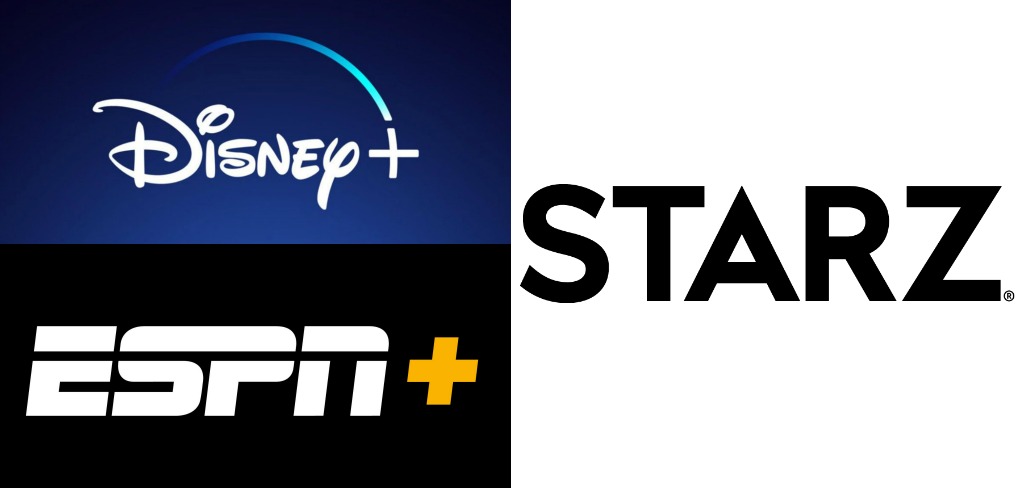#Disney+ ,#ESPN+ ,#Starz,
Disney has agreed to run the ads in exchange for streaming rights to some of its own films, like Star Wars: The Force Awakens, which had previously been licensed out to Starz, according to a person familiar with the arrangement. A display ad will appear on the login page for Disney+ and ESPN+, based on photos seen by The Verge. The ad will also appear on Disney+’s Android app and in browsers, the person said.
A Disney spokesperson confirmed that ads are part of a revised licensing deal with Starz that was made in order to have certain titles available on Disney+ at launch. Customers will see a display ad prompting them to sign up for Starz, but there aren’t any ads within the actual Disney+ or ESPN+ service once they sign in.
Disney+ was originally touted by executives as a completely ad-free platform. Kevin Mayer, Disney’s head of direct-to-consumer entertainment and the man who oversees all of Disney+, told investors at an event in April that “Disney+ will be a wholly subscription supported service.”
The new streaming service is facing a problem of Disney’s own making. Disney spent years signing lucrative licensing deals for companies including Netflix and Starz to be able to stream movies from Marvel, Lucasfilm, and Pixar. Now that Disney is launching a streaming service for itself, the company needs to regain those streaming rights before its own service can show many of the biggest hits it’s now associated with. Many properties, Disney CEO Bob Iger said in an investors call in August 2018, “are encumbered by licensing arrangements that we have with a number of different entities, notably Netflix and Starz.”
Disney teased that it’s been working toward regaining those rights earlier this year. “I think as you can see from what we’re making available, and from seeing some of the titles that we’re making available at launch, there’s been a lot of effort that went into bringing it all back together so that we could make it available on the service,” Michael Paull, head of Disney streaming services, told The Verge in August.
Well before the 2017 announcement of Disney+, Starz secured the rights to Star Wars: The Force Awakens and a number of Marvel movies. Analyst Todd Juenger asked Iger about the complicated rights situation in August 2018, prompting the executive to acknowledge The Force Awakens wouldn’t be available to stream on launch day.
“It’s clear that, from a library perspective, while there’s certainly a lot of volume, the recent studio slate will not fully be available at any one time because of the existing deals and it would take time for those rights, ultimately, to revert back to us,” Iger said.
By April 2019, that was no longer the case. Kathleen Kennedy, Lucasfilm’s president, told investors that the “first two trilogies plus The Force Awakens and Rogue One will be available” on day one. Remaining titles, including Star Wars: The Rise of Skywalker and Solo: A Star Wars Story would be available within the first year, Kennedy added. The Last Jedi should be available to stream on Disney+ once Disney’s contract with Netflix expires at the end of this year.
Rights issues are complicated — and they’re also some of the most protected secrets in Hollywood. In the lead-up to Disney+, Agnes Chu, Disney+’s head of content, told The Hollywood Reporter that she spent her days “[paging through] binders of pieces of paper with legal deals.” Movies are expensive to make, and licensing helps to generate a bigger return on investment, according to Jeff Ulin, a former distributor at Lucasfilm and digital rights expert.
“Historically, a movie would cycle through different windows,” Ulin told The Verge. “You would have it go to a theater, then it would go to video, and then it would go to pay TV like a Showtime or HBO. You own the underlying copyright and ownership, and what that says is you own the rights to license it. Licensing it, you could split it up 100 different ways. Licenses can run for many, many years. Where it’s been licensed to, who it’s licensed to, and for how long, that gets very complicated.”
Other entrants in the streaming space, such as WarnerMedia and NBCUniversal, are now finding themselves in a similar position, having to make new deals to collect streaming rights to the properties they’re famous for. Shows like The Office and Friends are being sold for hundreds of millions of dollars just so the original owners can get the rights to their own shows back.

Comments
Post a Comment